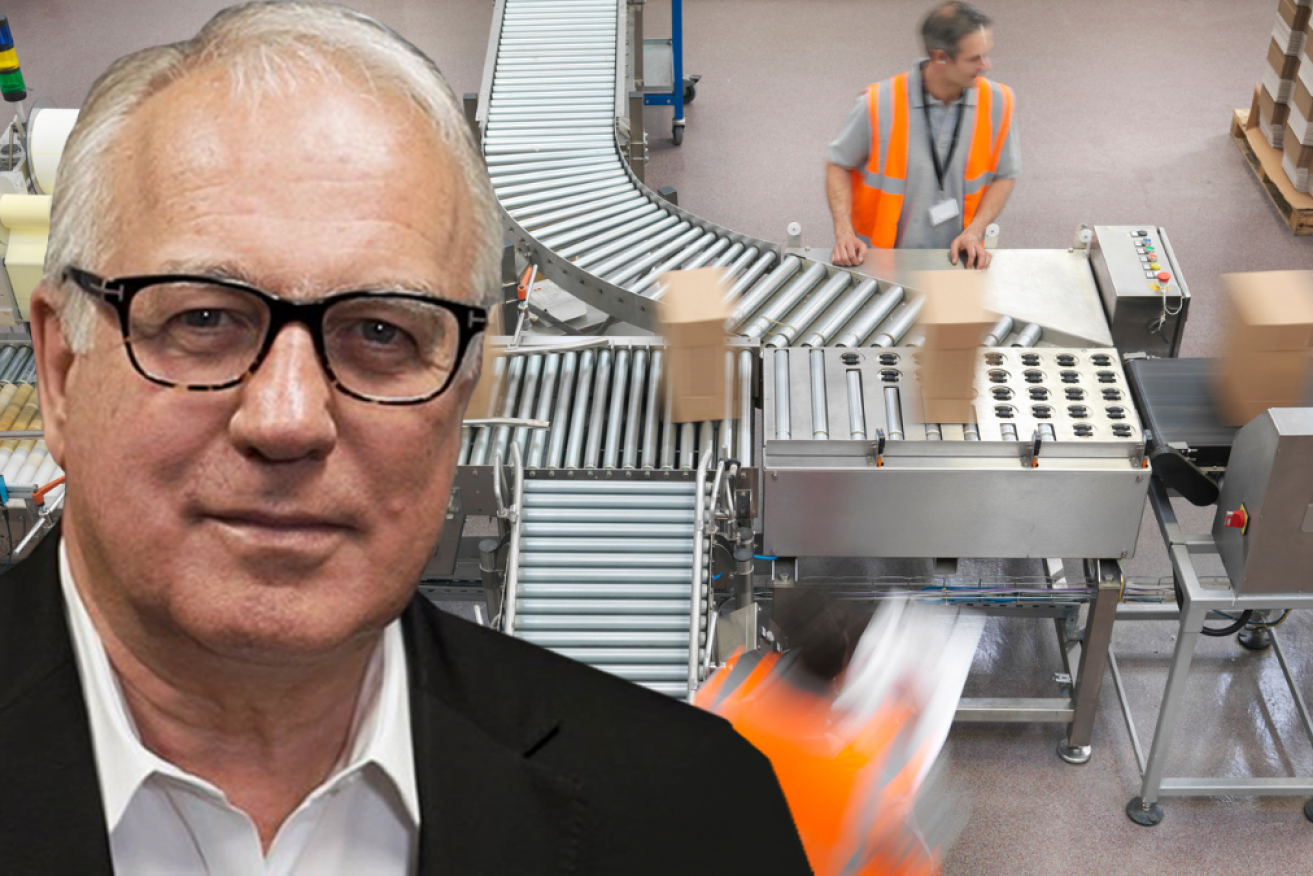Alan Kohler: A windfall tax, or cutting income taxes, won’t fix productivity problem


Boosting productivity improves the standard of living. Photo: Getty/TND
Around 1670, Louis XIV’s finance minister, Jean-Baptiste Colbert, famously declared that “the art of taxation consists in so plucking the goose as to obtain the largest possible amount of feathers with the smallest possible amount of hissing”.
In July 2023, 353 years later, the secretary of the CFMEU, Zach Smith, asked in his National Press Club speech last month: “How can you raise 511 billion feathers whilst causing the least amount of hissing? The answer to us is clear: a super profits tax.”
He didn’t say feathers and hissing, but rather “dollars” and “suffering”, but he was basically channelling M. Colbert.
He went on: “The money exists, the wealth exists, but it doesn’t exist in ordinary Australian households. It exists in the profit columns of a very small and very elite group of corporations.”
It’s not just Australian unionists who want to tax the profit columns of that very small and very elite group of corporations – Italy’s right-wing government shocked everyone last week with a surprise 40 per cent tax on “windfall” bank profits from rising interest rates.
Italy’s Deputy Prime Minister Matteo Salvini told a news conference on Monday, also channelling M. Colbert: “One has only to look at banks’ first-half profits to realise that we are not talking about a few millions, but of billions”.
So when Commonwealth Bank announced a $10.2 billion profit on Wednesday, the cry went up to tax the buggers like Italy did because, well, it’s a lot of money.
Meanwhile in Italy, there was a bit too much hissing, so on Thursday, the government watered the windfall tax down by capping it at 0.1 per cent of assets.
The problem with a super profits tax is not the hissing of very elite geese, but the fact that it’s really paid by the “ordinary Australian households” who are customers and shareholders.
Corporations don’t exist, except as a legal structure which the owners of capital use to employ people to recruit customers and sell them something while limiting their own liability.
It’s true that some owners, employees and customers are rich elites, but most are ordinary households, especially the customers, who are the ones that end up paying all company taxes.

Matteo Salvini, Italy’s deputy Prime Minister. Photo: Getty
The executives who run the companies certainly don’t pay it, that’s for sure, and they usually manage to ensure their owners don’t pay it either by passing it on to customers, because keeping them happy is their goal in life, in order to maintain and grow their salaries.
Companies are merely tax collectors, not payers; the only real way to tax “elites” is through personal income and wealth taxes, not intermediate taxes like those paid by companies or super funds or, for that matter, on goods and services, which hit ordinary households the hardest.
Which brings us to the other tax debate going on at the moment: That productivity will be improved if we cut taxes, both company and personal.
Before the pandemic, productivity growth dropped from 2.4 per cent a year in the 1990s to 1 per cent in the 2000s. Since the pandemic it’s gone to zero, and last year was minus 4 per cent.
On Friday Reserve Bank governor Philip Lowe told the House of Representatives Standing Committee on Economics that if Australia’s productivity doesn’t improve, unit labour costs and inflation would keep rising, “which would be problematic”.
It was a clear warning: If there’s no pick up in productivity then interest rates will have to rise some more.
At the same time, the new CEO of the Business Council of Australia Bran Black was giving interviews in which he said that tax reform is the “No.1 priority” in the productivity challenge.
He was echoing a recent call from the CEO of the Australian Industry Group, Innes Willox, that lower taxes on companies and individuals should be considered to restore the nation’s flagging productivity.
Which would carry more weight if Australia’s productivity growth hadn’t peaked in the 1980s when the company tax rate was 50 per cent and the top marginal income tax rate was 60 per cent, and as taxes were cut to 30 per cent and 47 per cent respectively, productivity growth did nothing but decline.
Undeterred, those who pay those taxes argue that if only they were cut some more, productivity would definitely rise this time. Just wait.
It is strained logic indeed to suggest that the productivity of workers has declined because their employers pay too much tax.
As I argued here in May, “The reason labour productivity (GDP per hours worked) has been flatlining is because workers don’t care any more”.
Real wages have been declining, hours worked have been rising and house prices have boomed, so workers can’t get ahead and have lost hope. Why would they work productively? Only immigrants are uninfected with ennui, which is presumably why businesses are so keen on them, apart from the usual desire to increase the supply of labour to push down its price.
The other reason for lower productivity is the lack of business investment.
The proportion of private sector investment in equipment in the economy has halved, from 8 per cent of GDP in 1980 to 4 per cent now. The company tax rate in 1980 was 46 per cent – cutting it to 30 per cent has not resulted in businesses investing more to improve their productivity.
What has happened since 1980 is a big increase in CEO salaries. That’s not only the result of lower company taxes, but it hasn’t hurt.
The average CEO salary has gone from four times average weekly earnings in 1980 to 20 times now, with some outliers. For example, in 1980 the big four bank CEOs were paid about 10 times AWE (average weekly earnings), and last week we learned that Matt Comyn of CBA made $10.4 million last year, which is 100 times AWE.
In 1952, Matt would have paid 75 per cent income tax on most of that.
In that year productivity growth was 2.1 per cent.
Alan Kohler writes twice a week for The New Daily. He is finance presenter on ABC News and founder of Eureka Report








